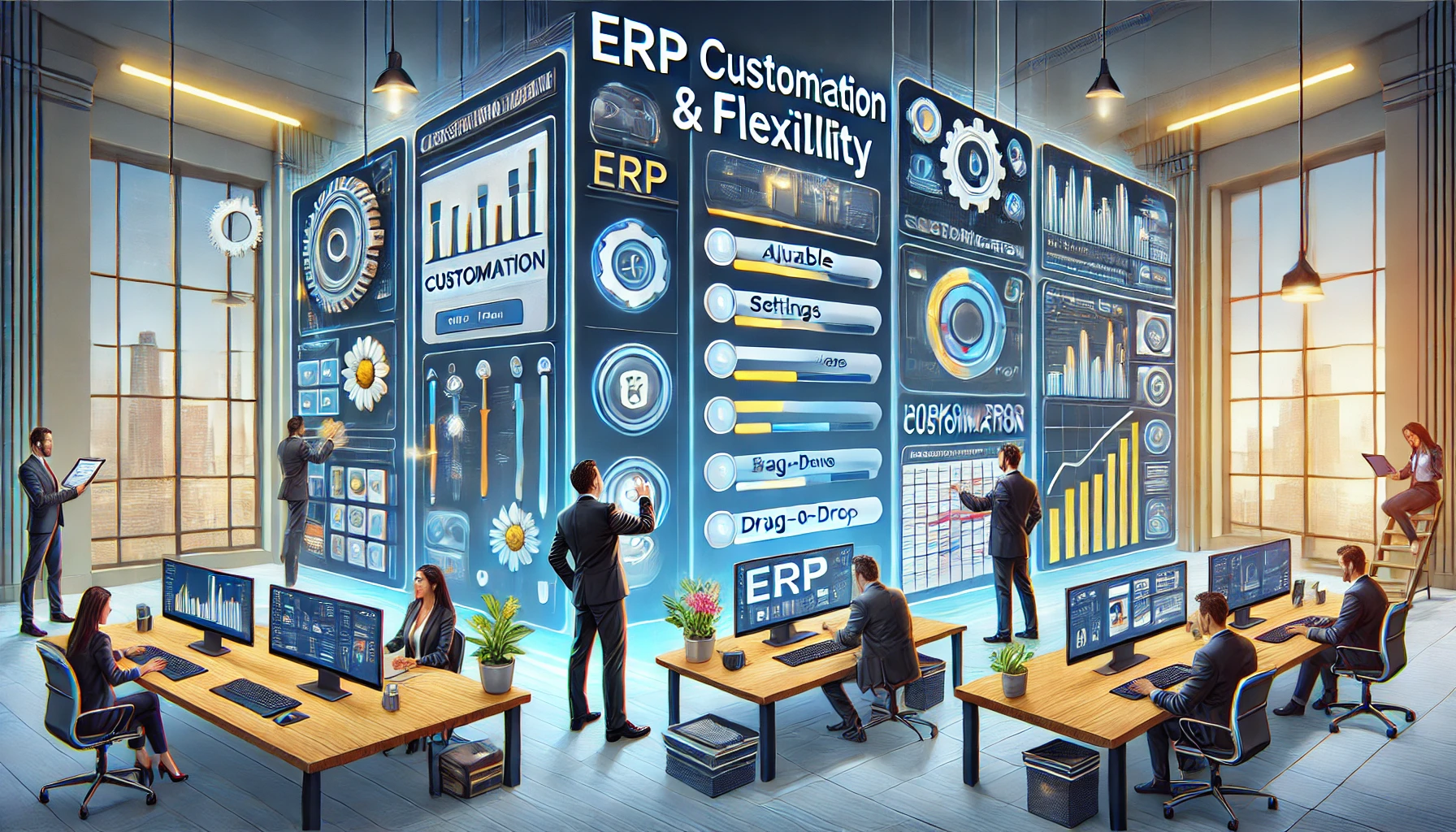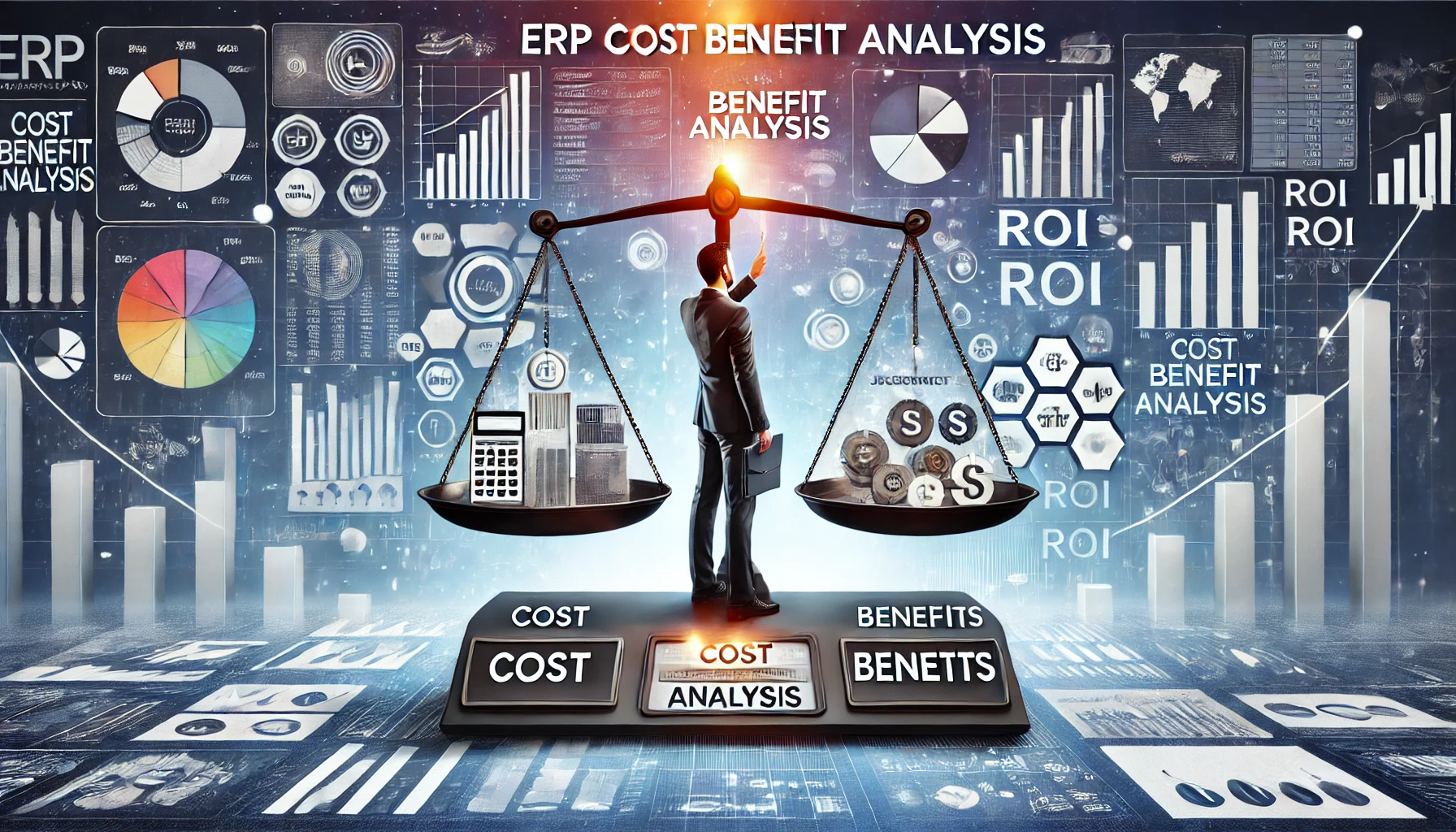Enterprise Resource Planning (ERP) systems are designed to integrate core business processes, enhancing efficiency and data accuracy. However, one-size-fits-all ERP solutions often fall short, as every organization has unique workflows, reporting needs, and industry-specific challenges.
To maximize the benefits of ERP, businesses need customization and flexibility—the ability to tailor the system to meet specific operational requirements while ensuring it can adapt to future changes without complex reconfiguration.
This article explores why ERP customization and flexibility are essential and how businesses can strike the right balance between standardization and adaptability.
1. Why Customization Matters in ERP Systems
Many businesses adopt ERP systems to streamline operations, but standard ERP functionalities may not always align with their unique workflows. Customization allows companies to:
Align ERP with Business-Specific Processes – Every industry has distinct operational needs. A retail company may need advanced inventory tracking, while a manufacturing firm might require production scheduling automation. Customization ensures the ERP system reflects these differences.
Improve User Adoption and Productivity – Employees work more efficiently when ERP features match their existing processes, reducing the learning curve and resistance to change.
Enhance Decision-Making with Tailored Reporting – Standard ERP reporting might not capture key performance indicators (KPIs) relevant to your business. Custom dashboards and analytics provide real-time insights specific to company goals.
Automate Unique Workflows – Many businesses rely on manual processes or third-party software to handle specific tasks. A customizable ERP allows these workflows to be automated within the system, improving efficiency and accuracy.
2. The Importance of ERP Flexibility
Beyond customization, businesses also need ERP flexibility—the ability to adapt as needs evolve without requiring expensive overhauls.
Why is ERP Flexibility Critical?
Business Growth & Scalability – As companies expand, ERP systems must support additional users, locations, and new business models. A rigid system may require costly replacements, while a flexible ERP scales effortlessly.
Adaptability to Changing Regulations – Many industries face frequent compliance updates. A flexible ERP allows for easy configuration adjustments to meet new regulatory standards.
Seamless Integration with Other Systems – Businesses often use CRM, HR, and financial tools. A flexible ERP integrates easily with these systems, ensuring smooth data exchange.
Fast Modifications Without Disruptions – Business processes change over time. A configurable ERP system allows modifications without extensive reprogramming or downtime.
Cloud vs. On-Premise Options – Cloud-based ERP solutions offer the ultimate flexibility, allowing businesses to scale resources on demand and access data from anywhere.
3. Striking the Right Balance: Standardization vs. Customization
While customization is valuable, excessive modifications can lead to high costs, longer implementation times, and difficult system upgrades. Businesses should aim for a balance by:
Using Core ERP Functionalities Where Possible – Avoid over-customizing features that an ERP system already handles efficiently.
Leveraging Low-Code/No-Code Customization Tools – Many modern ERP systems offer drag-and-drop interfaces for quick, code-free modifications.
Prioritizing Scalable Customization – Instead of deeply modifying the core system, opt for modular add-ons or APIs that allow flexibility without disrupting system integrity.
Choosing an ERP Vendor with Strong Support – A vendor that offers long-term support and customization assistance can help businesses adjust their ERP system as needs evolve.
4. Examples of Businesses Benefiting from ERP Customization & Flexibility
Nike – Customized its ERP system to align supply chain processes across global markets, improving order accuracy and reducing stock shortages.
Tesla – Uses a highly flexible ERP that supports continuous innovation and rapid scaling without requiring full system overhauls.
Coca-Cola – Customized its ERP for inventory tracking and regulatory compliance, allowing for easy adjustments as business needs changed.
According to Panorama Consulting, 92% of organizations that customized their ERP saw improved efficiency, while 70% of companies that relied solely on out-of-the-box ERP functionalities struggled with process misalignment.
5. Choosing the Right ERP for Customization and Flexibility
When selecting an ERP system, businesses should ask:
How easily can the ERP be customized to match unique workflows?
Does it support modular add-ons and third-party integrations?
Can it scale as the business grows without extensive modifications?
What customization tools does it offer (low-code platforms, API integrations, etc.)?
Does the vendor provide ongoing support for customizations?
Final Thoughts: Making ERP Work for Your Business
ERP systems should adapt to your business—not the other way around. By choosing a system with strong customization options and built-in flexibility, businesses can optimize workflows, enhance efficiency, and future-proof their operations.
Need Help Finding the Right ERP? Let’s Talk!
Our experts can help you choose an ERP system that balances customization, flexibility, and long-term growth potential.
👉 Schedule a Free Online Consultation Today!


